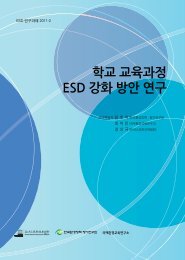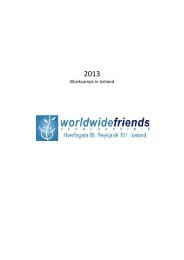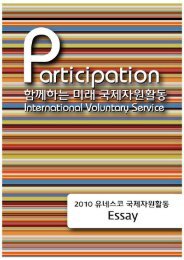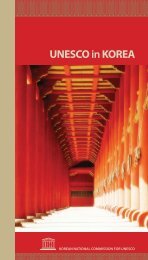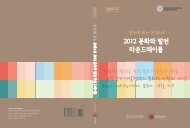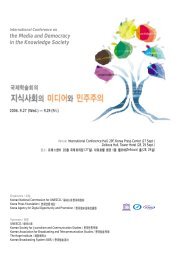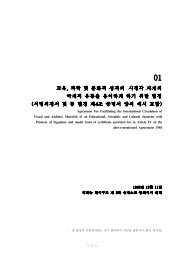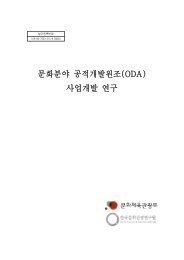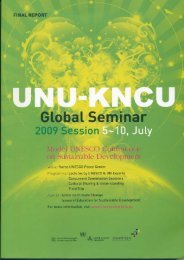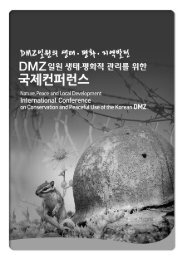Untitled
Untitled
Untitled
Create successful ePaper yourself
Turn your PDF publications into a flip-book with our unique Google optimized e-Paper software.
I. Introduction: ESD and the Transition to a Low-Carbon Environment-<br />
Friendly Economy<br />
The constant increase in fossil energy consumption is raising the concentration<br />
of carbon dioxide and methane gas in our atmosphere, resulting in the<br />
environmental crisis that we face today. Also, rapid industrialization of China and<br />
India, following the advanced industries in the United States, Europe and Japan,<br />
along with Korea and other emerging economies, is accelerating the depletion of<br />
environmental resources including fossil fuels. Seeking ways for sustainable<br />
development is required at all levels in this global society. On the other hand, with<br />
the advent of the decline in world economy brought on by the recent global financial<br />
crisis, nations are planning ahead on Low-Carbon/Environment-Friendly Green<br />
Investments and seeking new ways for economic vitality. Korea has joined this wave<br />
in 2008, beginning to advocate “Green Growth” as a virtuous circle utilizing resource<br />
management and reduction of environmental pollution as drivers for economic<br />
growth. 51<br />
In order to transform the existing industrial structure and production<br />
mechanisms to a low-carbon/environment-friendly way, training of new manpower<br />
and reorientation and training of existing human resources must be put in place.<br />
Such education and training can be seen as a sub-realm or action example of the<br />
“Decade of Education for Sustainable Development” (2005-2014) advocated by the<br />
UN in 2002. This is because such training aims to constantly cultivate vocational<br />
skills as a means of preparing for a future in an international environment filled with<br />
rapid technological changes and developing earth in a sustainable and eco-friendly<br />
way. In this aspect, UNESCO’s Bonn Declaration (2009) focuses on the importance<br />
of training new personnel and reorientation of existing manpower to stimulate<br />
sustainable development.<br />
This research will investigate the changes in the automobile industry with the<br />
advent of Green Cars and in subsequent technological advances to find effective<br />
ways of training technical professionals to meet such changes. In the transition to a<br />
low-carbon/environment-friendly economy the development and widened use of<br />
Green Cars not only hold symbolic importance in the Green Paradigm but also can<br />
be regarded as a core driver of sustainable development, posing significant lead<br />
effects in the industry. The impact of the automobile industry is especially large in<br />
the Korean economy. Analyzing technological changes and subsequent needs in the<br />
future and seeking ways for training relevant personnel will be good references not<br />
<br />
51 The Korean government has recently decided to set the targeted reduction for national greenhouse gas<br />
emission in 2020 to 30% of BAU (Business As Usual) This plan for reduction is the highest among<br />
developing nations with an IPCC (Intergovernmental Panel on Climate Change) recommendation of 15-30%<br />
reduction compared to BAU.



